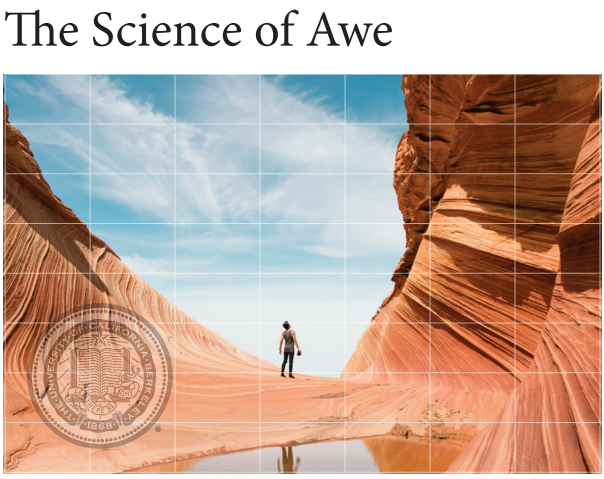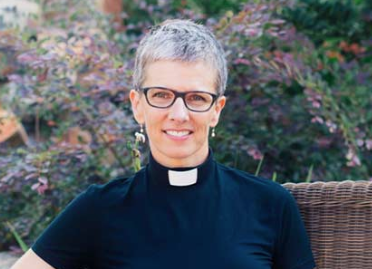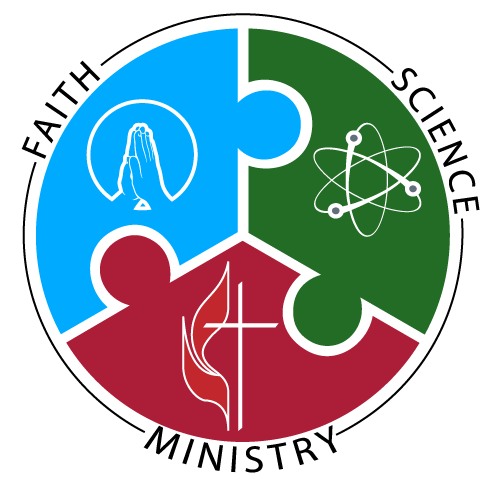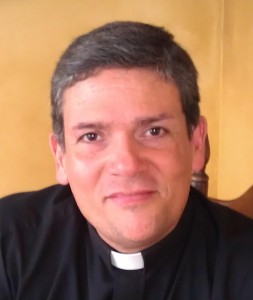Dear WesleyNexus Colleagues:
As the new year begins, the Christian calendar moves from the season of Advent to the season of Epiphany. Liturgically, this is the time when the church focuses on the disclosure of Jesus’ divinity to the Magi and the divine disclosure of John’s baptizing of Jesus in the Jordan River. There is a broader meaning of epiphany as defined by Webster’s online dictionary. This definition has three related meanings: (1) a usually sudden manifestation or perception of the essential nature or meaning of something; (2) an intuitive grasp of reality through something (such as an event) usually simple and striking; and (3) an illuminating discovery, realization, or disclosure. Taking this more expansive, non-religious sense of epiphany, we can draw some implications that have relevance to religion, theology, and science.
The first of these is a presupposition of prior ignorance preceding the experience of discovery. While the methods leading to disclosure vary across disciplines, the movement from ignorance to insight is often marked by groundbreaking conceptual shifts. Validation of those insights may follow these shifts, but once experienced, the moment of epiphany provides a change of perspective in regard to the object or subject at hand. For Christianity, the moments of epiphany reveal to the individual and community the presence of God working through Christ. In theology, an epiphany provides a deeper, richer way of understanding that presence. In science, too, as articulated in Thomas Kuhn’s ground-breaking book The Structure of Scientific Revolutions [ISBN: 02264-58040], there are moments when ordinary science gives way to conceptual transitions that redirect understanding of an entire scientific discipline, such as special and general relativity in physics.
Being human, moments of epiphany are not always only exhilarating. To the contrary, they can profoundly upset the apple cart, replacing perceived order with uncertainty and ambiguity. A sense of both fear and wonder, and of awe, is frequently a part of the experience. Comprehending it usually takes time, reflection, and communication. The Gospel of Mark presents the disciples as clueless followers, continually misunderstanding the meaning and purpose of Jesus. The disciples frequently misunderstand what Jesus’ mission means and only gradually does this meaning become clear. Likewise, in science, physics has been trying to clarify what the discoveries in relativity and quantum physics imply about our universe and to correct insights not supported by evidence or reason.
Humility and awe go together. In this issue, we have included a number of articles that address these features of epiphany. We hope you find something that helps you see things in a new way.
Lastly, mark your calendars! WesleyNexus will host its seventh annual Evolution Weekend in Maryland on February 9th. The event will take place at the Baltimore-Washington Conference United Methodist Mission Center in Fulton, Maryland. Thanks to our generous contributors, we will be able to live-stream the event to churches and colleagues around the world. While our funding is adequate for our current needs, we ask your on-going support in order to develop more programs for this coming year. WesleyNexus is a 501(c)(3) charitable, educational organization, and we will acknowledge all gifts from individuals for tax-reporting purposes. Thanks in advance for your support.
Blessings and a happy new year to all,
Rick, Jennifer, Maynard, and the rest of the WesleyNexus team.
********************************************************************************

Evolution Weekend 2020
PATRIARCHY: In Science, Education, and the Church
Sunday, February 9, 2020
3:30 – 5:30 PM
Baltimore-Washington United Methodist Conference Center
11711 East Market Place, Fulton, MD
Free of charge and open to the Public
Flyer is available here: https://wesnex.org/wp-content/uploads/2019/12/FlyerEvolutionWeekend2020.pdf
Live steam can be accessed here: http://www.ebmcdn.net/webcast/flash/wesleynexus/live-iframe.html (Note: Until February 9, the video stream presents the 2019 Evolution Weekend program)
WesleyNexus is hosting its Seventh Annual Evolution Weekend program in Maryland and will live stream the event for churches and colleagues across the country. This event, PATRIARCHY: In Science, in Education and the Church, will feature presentations from three distinguished panelists, followed by Q & A.
Dr. Amy Swain (Warffeli) will deliver the keynote on patriarchy in science. Amy’s scientific background is in structural biology, which is a cross-cutting field that enables scientists to visualize molecules. After doing research at the National Cancer Institute and then Hoffman-LaRoche, Inc., Amy entered science program administration where she has supported the advancement of structural biology technologies for researchers. At the National Institutes of Health from 1999-2016, Amy supported biomedical research and, since 2016, has been supporting biological and environmental research at the Department of Energy. Amy is a member and active lay person at Grace United Methodist Church in Gaithersburg, Maryland.
Dr. Caryn McTighe Musil will give the keynote on patriarchy in education. A Senior Director for Civic Learning and Democracy Initiatives at the American Association of Colleges and Universities, Dr. Musil was raised Episcopalian, but she says, “It was the First United Methodist Church of Germantown in Philadelphia that brought my husband and me back to the church after a long hiatus. Part of the attraction in 1976 was that FUMCOG had already shifted the language of the Lord’s prayer to “Our Mother/Father,” had a gender inclusive “homemade” hymnbook, and married gay couples. I was teaching women’s studies at the time at La Salle University, so being part of a feminist worship was critical for me.” After moving to D.C., Caryn and her husband have been active at Westmoreland Congregational UCC.
Dr. Carla Works give the keynote on patriarchy in the church. Recently raised to full professor at Wesley Theological Seminary, Dr. Works is professor of New Testament. Her research interests include Pauline studies, the New Testament’s use of Israel’s scriptures, biblical ethics, and theological interpretation. She holds a Master’s degree from Yale Divinity School and a Ph.D. from Princeton. A published author, mother, minister’s wife, and native Arkansasan, she incorporates into her teaching anything from Dr. Seuss’s stories to the Arkansas Razorback “hog call” to help illustrate a point. She is passionate about teaching, student learning, and the church.
********************************************************************************The Science of Awe: A white paper prepared for the John Templeton Foundation
by the Greater Good Science Center at UC Berkeley

“Awe experiences are self-transcendent. They shift our attention away from ourselves, make us feel like we are part of something greater than ourselves, and make us more generous toward others. But what is awe? What types of experiences are most likely to elicit feelings of awe? Are some people more prone to experiencing awe? And what are the effects of awe?
While philosophers and religious scholars have explored awe for centuries, it was largely ignored by psychologists until the early 2000s. Since then, there has been growing interest in exploring awe empirically. This has led to a number of fascinating discoveries about the nature of awe, while also raising many questions still to be explored”.
The full white paper can be found here:
https://ggsc.berkeley.edu/images/uploads/GGSC-JTF_White_Paper-Awe_FINAL.pdf
********************************************************************************
More on the Emerging Science of Awe and Its Benefits

Two recent articles address the emerging science of how awe, as a human experience, can have long lasting positive effects on those who experience it. For Christians, Epiphany can be a time of awe. Instead of focusing on a single moment of a peak experience, awe can be invoked in the gradual, regular experience of unfolding wonder. The two articles below discuss the benefits to health and wellbeing that are available to persons of faith and non-faith alike through the experience of awe:
Eight Reasons Why Awe Makes Your Life Better by Summer Allen:
https://greatergood.berkeley.edu/article/item/eight_reasons_why_awe_makes_your_life_better
The Emerging Science of Awe and Its Benefits by Emma Stone, Ph.D.:
********************************************************************************
God is Light by Peter J. Leithart

In a recent First Things essay, Peter Leithart uses the language of light to describe what the season of Epiphany means. The language supplements the language provided from other contexts such as science, history, and literature. How to bring these multiple interpretations together is one of the tasks taken up within the science and religion dialogue. Leithart’s meditation can be found here:
https://www.firstthings.com/web-exclusives/2020/01/god-is-light
********************************************************************************
Epiphany: How Science Teaches Us to Preach through the Season of Light by Lisa Cressman

Lisa Cressman provides a framework on how one can enrich the tradition of Epiphany within a culture dominated by science. Designed to help pastors with their sermon preparation, Cressman draws on physics, medicine, and neuroscience to illuminate the themes of light, seeing, and discovery associated with Epiphany. A helpful resource that is rich with numerous references that pastors and lay persons will find insightful:
********************************************************************************
Dr. King on Science and Faith by Jennifer Secki Shields

In this essay, Jennifer Secki Shields (a WesleyNexus board member) reflects on the insights of Martin Luther King, Jr. on the relationship between science and religion: Dr. King on Faith and Science.
**************************************************************
Wesley and the Poor-From a Liberation Perspective by Rev. Dr. Eliezer Valentín-Castañón

Rev. Dr. Eliezer Valentín-Castañón (a WesleyNexus board member) offers an extended reflection on the poor from a theological perspective. Within the Wesleyan tradition, the notion of sanctifying grace reflects the response to the epiphany of justification or saving grace. It provides the ”what next” aspect of this experience. Quoting Bishop Kenneth Carter, sanctification focuses on how we treat the poor and disadvantaged: “Ultimately, the church will be judged, not on the basis of the verbal correctness of its creedal statements nor the number of members on the roll. It will be judged by its presence with the poor and marginalized of the earth, for that is where God is. The God of the Exodus and of Jesus Christ cannot be known or served apart from relationships and ministry with the poor, the outcast, the despised.”
https://wesnex.org/wp-content/uploads/2020/01/Wesley-and-the-Poor-From-a-Liberation-Perspective.pdf
